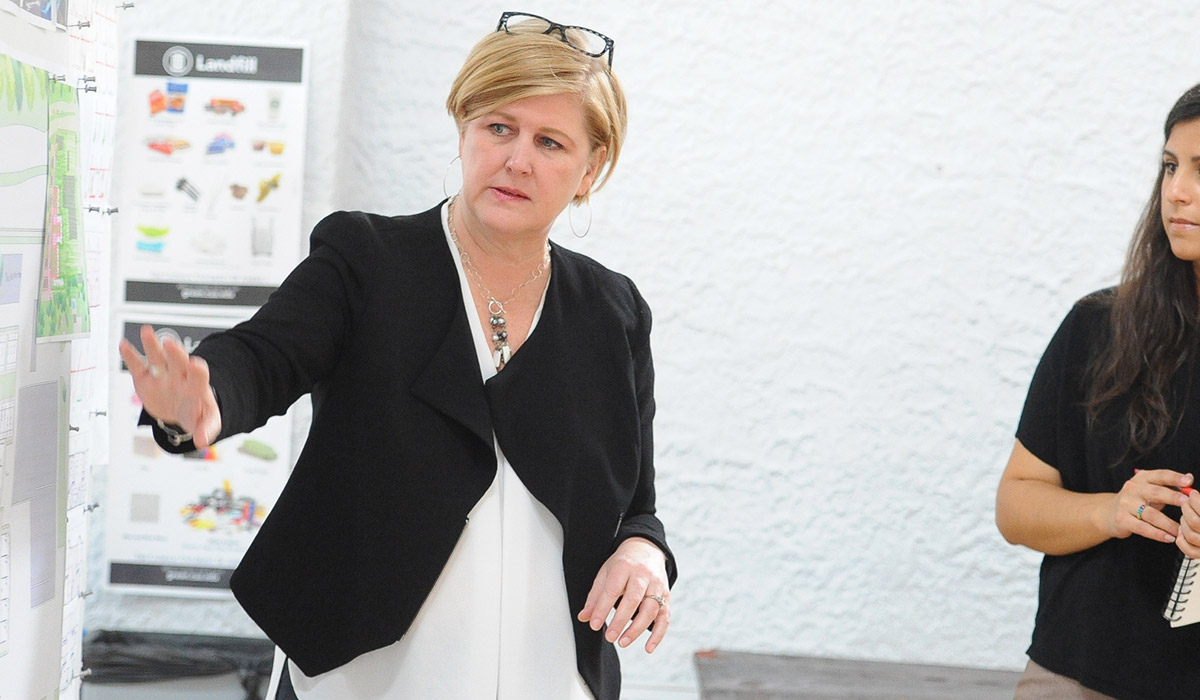

Carol Rickard-Brideau experienced many types of spaces as she grew up overseas. "I think there was a strong effect of being in these different places and how I felt different in them," she says. These feelings fueled an interest in architecture, design, and how spaces affect people.
In the late 1970s, Rickard-Brideau decided to attend Catholic University to study architecture. She chose the school because of its location and the rigor of the program. This rigor "helped me develop discipline and determination. It also helped me to think about what I really wanted out of life, and how I wanted to get there," she says.
She is now partner and D.C. office president at the architecture firm Little.
Rickard-Brideau’s childhood feelings continue to shape her work as an architect.
Rickard-Brideau studies WELL building standards, which focus on "human sustainability" — neuroscience research that investigates how design elements (like natural lighting, wood, stone, and plants) benefit humans.
Catholic University's architecture program "helped me develop discipline and determination. It also helped me to think about what I really wanted out of life, and how I wanted to get there."
"We spend 87 percent of our time indoors. Those spaces we exist in need to support human homeostasis — the stability that our bodies need to operate at their best and in ways that support our health," she says.
The importance of designing sustainable spaces was emphasized for Rickard-Brideau last year with the publication of Pope Francis’ encyclical on the environment, Laudato Si’.
In the encyclical, the Pope not only referenced environmental ecology and resource depletion, “But also, he said that the way we develop the world has an impact on cultures and on people,” she says. "To know what I was doing could play a part in what he was suggesting … that was very exciting."
Rickard-Brideau is responsible for hiring and mentoring talent at her firm. She has hired a number of Catholic University graduates. "They keep asking questions, keep pushing the envelope, keep looking for ways to make the world a better place. I think their grounding in liberal arts together with the architecture education they receive really sets someone up to be engaged, intelligent, and curious — really everything you want in someone working for you."